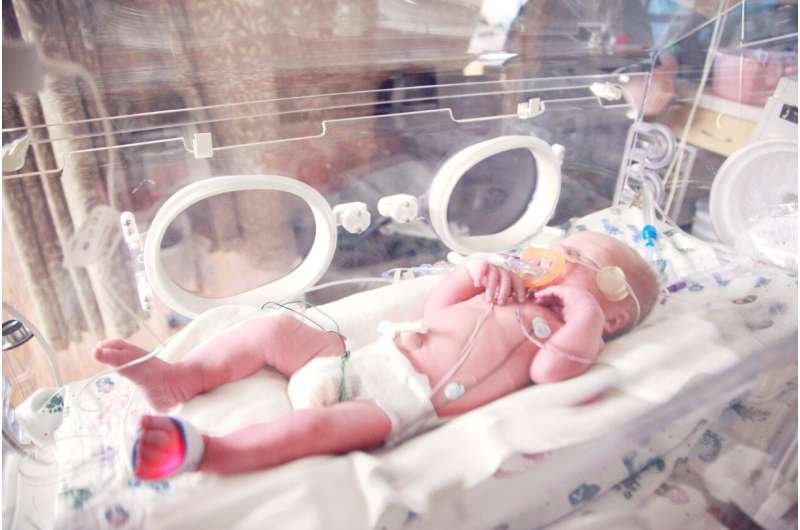This article has been reviewed according to Science X's editorial process and policies. Editors have highlighted the following attributes while ensuring the content's credibility:
fact-checked
peer-reviewed publication
proofread
Cannabis use during pregnancy associated with adverse birth outcomes

Infants prenatally exposed to cannabis are more likely to be born preterm, have a low birth weight, and require neonatal intensive care unit (NICU) care than infants without prenatal cannabis exposure, according to a study published today in Addiction. However, cannabis-exposed infants are not at greater risk of birth defects or death within one year, including sudden unexpected infant death.
First author Ms. Maryam Sorkhou comments, "The global increase in cannabis use among women of reproductive age also extends to pregnant women. We know that THC, the main psychoactive constituent in cannabis, can cross the placenta from mother to fetus and bind to receptors in the fetal brain. Our study adds to that knowledge by showing that prenatal exposure to cannabis heightens the risk of several adverse birth outcomes."
This meta-analysis (a synthesis of past studies) pooled the results of 57 prior studies with a total of 12,901,376 infant participants, 102,835 of them exposed to cannabis.
Twenty of the studies measured the association between intrauterine cannabis exposure and risk of preterm delivery. In these, the combined results show that mothers using cannabis were over 1.5 times more likely to have a preterm delivery compared with mothers not using cannabis during pregnancy.
Eighteen of the studies measured the risk of low birth weight. In these, the combined results show that mothers using cannabis during pregnancy were more than twice as likely to have a low-birthweight baby compared with mothers not using cannabis during pregnancy.
Ten of the studies measured the risk of requiring NICU admission. In these, the combined results show that newborns with intrauterine cannabis exposure were more than twice as likely to require NICU admission than nonexposed newborns.
The studies included in this meta-analysis were published between 1984 and 2023 in a broad range of countries.
More information: Birth, Cognitive, and Behavioral Effects of Intrauterine Cannabis Exposure in Infants and Children: A Systematic Review and Meta-Analysis, Addiction (2023). DOI: 10.1111/add.16370



















